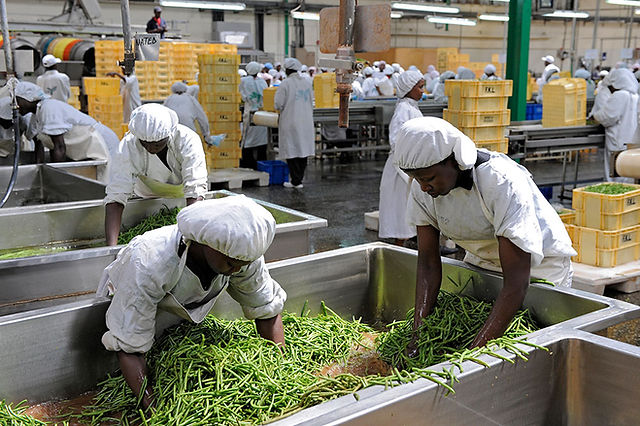- This topic is empty.
-
AuthorPosts
-
-
জানুয়ারি 21, 2025 at 11:12 অপরাহ্ন #542942
 Agric4ProfitsKeymaster
Agric4ProfitsKeymaster
Agro-processing is also known as agricultural processing. This refers to the transformation of raw agricultural products into value-added goods.
This crucial stage in the food and agricultural supply chain involves converting crops and livestock into various forms, such as food products, beverages, textiles, and biofuels.
Agro-processing plays a vital role in enhancing the agricultural sector’s efficiency, sustainability, and economic growth. In this article, we will explore the numerous benefits of agro-processing.
1. Economic Advantages
a. Increased Employment Opportunities: Agro-processing industries create jobs at various levels, from farming and production to distribution and marketing. This leads to reduced unemployment rates and improved livelihoods in rural and urban areas.
b. Foreign Exchange Earnings: Agroprocessed products are often exported to international markets, generating foreign exchange earnings for the country. This revenue can be utilized for various developmental projects and improving the overall economic health.
2. Value Addition
a. Enhanced Shelf Life: Agroprocessing techniques, such as canning, drying, and freezing, extend the shelf life of perishable agricultural products. This reduces post-harvest losses and ensures a stable supply of goods throughout the year.
b. Diversification of Products: Agroprocessing allows for the creation of a wide range of products from the same raw materials. For instance, fruits can be processed into juices, jams, and dried snacks, providing consumers with more choices and enhancing the marketability of agricultural produce.
3. Food Security and Sustainability
a. Reduced Wastage: Agroprocessing enables the utilization of imperfect or surplus produce that might otherwise go to waste. By converting these products into value-added items, the food supply is maximized, and food security is strengthened.
b. Improved Nutrition: Processing agricultural products can enhance their nutritional value by fortifying them with vitamins and minerals. Additionally, the availability of processed foods ensures a more balanced diet for consumers.
4. Technology and Innovation
a. Modernization of Agriculture: The adoption of agro-processing technologies necessitates advancements in farming practices, storage, and transportation. This modernization enhances productivity and efficiency in the agricultural sector.
b. Research and Development: Agro-processing industries encourage research and development to improve processing methods, optimize resource utilization, and introduce innovative products to the market.
5. Rural Development
a. Infrastructure Improvement: Agro-processing plants require a well-developed infrastructure, such as roads and electricity, leading to better connectivity and development in rural areas.
b. Income Diversification: Agroprocessing provides farmers with an additional income stream beyond raw produce sales, reducing their reliance on seasonal income and stabilizing their financial condition.
6. Environmental Benefits
a. Waste Management: Agroprocessing can lead to more efficient waste management by utilizing by-products for other purposes. For example, crop residues can be turned into animal feed or organic fertilizers.
b. Sustainable Energy Production: Some agro-processing methods, like biofuel production, can generate renewable energy, reducing the dependence on fossil fuels and lowering greenhouse gas emissions.
8. Income Generation
a. Profit Margin: Agroprocessing typically adds value to raw agricultural products, allowing farmers and processors to sell finished goods at higher prices, resulting in improved income and profitability.
b. Steady Cash Flow: The agro-processing sector provides a steady income flow throughout the year, reducing the income disparity between peak and off-peak seasons for farmers and processors.
In conclusion, agro-processing brings a multitude of benefits to the agricultural sector and the overall economy. From economic growth and job creation to food security and environmental sustainability, the advantages of agroprocessing are vast and impactful.
Governments, stakeholders, and farmers should continue to invest in this essential industry to harness its full potential and create a sustainable future.
-
-
AuthorPosts
- You must be logged in to reply to this topic.






